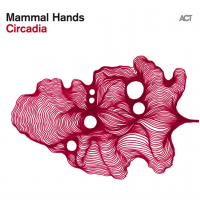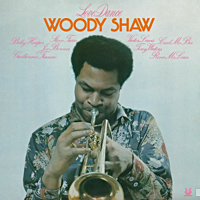Home » Jazz Articles » Album Review » Tony Allen: Black Voices
Tony Allen: Black Voices
The only rhythm-section musician in Fela’s Afrika 70 band whose parts were not scripted was Tony Allen, the trap drummer, who had been with Fela from very near the beginning of the decade. Fela, with his ego and his begrudging background in classical study, nevertheless knew he had in Tony a drummer with the mind of a composer; in modern jazz terms, an improvisor, “one who composes on the spot.”
A peripheral listen to an Afrika 70 disc like Confusion, where Allen sets up the entire composition in tandem with Fela’s keyboards (one of the boss’s best statements on any instrument,) or to any track off the new solo album Black Voices, will reveal Allen as perhaps the ideal funk drummer, the type of drummer Herbie Hancock would have been ecstatic to have at the inception of the Headhunters, when he wanted “funk cats who knew how to play jazz”, although Allen’s virile style may have been too much for that synthesizer-drenched band. If funk as style and creative method is a direct offshoot of the African diaspora - Yoruba by way of Cuba by way of New Orleans - and if the funk is an essential element of African music and thought, then Tony Allen is, indeed, one of the very best funk drummers, if not the best, and also among the world’s great percussionists, period.
His new disc answers the question of space that is brought about by such authoritative drumming, which is: How is it possible to structure a) a composition and b) a mix, around it? In terms of zeitgeist and practicability, the answer is dub minimalism. The gospel-derived mounting emotional fervor of American funk and the movement of Fela’s music which grew more intense through a glacial layering-and-loudness additive technique have both been cut and structurally-simplified. The melodic emphasis of much jazz and black popular music has also been jettisoned. Each track grows in meaning and intensity through a capitulation of motifs proceeding through a circular path and given colouring by “small” improvisations, a method that can be heard in the gnawa music of Morocco (a music heavily indebted to southern Saharan traditions brought northward through forms of cultural dispersion including slavery) and in dub, the most obvious precedent for the production work on Black Voices.
The voices themselves on this disc meander and grunt with a sense of intoxication, and Allen’s drum sound is breathtakingly hard. The lyrical themes are simple: know thy brother in order to know thyself, get together, we share the same blood so why should we hate each other, et al. The presence of P-Funk’s Gary “Mudbone” Cooper reinforces the funky peace vibe. After a few spins, what remains in my mind are constantly mutating riffs and a soundworld created through a blend of mixology and the original performances that recall various aspects of the diaspora’s musical tradition while remaining music of now.
Tracks: Asiko / Get Together / Black Voices (We Are What We Play mix) / The Same Blood / Asiko: In a Silent Mix; Black Voices / Ariya (PsychejujuMix).
Personnel: Tony Allen - drums, percussion, and lead vocal / Gary “Mudbone” Cooper - lead vocal on “Get Together” / Mike “Clip” Payne - lead vocal on “Black Voices” / Cesar Anot - bass / Seb Martel - guitars / Fixi - keyboards, wurlitzer, clavinet / Doctor L - percussion on “In a Silent Mix” / Cathy Renoir, Mudbone Cooper - background vocals / Loik & Da-Link - drum programming on “We Are What We Play mix”.
Personnel
Tony Allen
drumsAlbum information
Title: Black Voices | Year Released: 2000 | Record Label: Comet Records
Tags
PREVIOUS / NEXT
Support All About Jazz
 All About Jazz has been a pillar of jazz since 1995, championing it as an art form and, more importantly, supporting the musicians who make it. Our enduring commitment has made "AAJ" one of the most culturally important websites of its kind, read by hundreds of thousands of fans, musicians and industry figures every month.
All About Jazz has been a pillar of jazz since 1995, championing it as an art form and, more importantly, supporting the musicians who make it. Our enduring commitment has made "AAJ" one of the most culturally important websites of its kind, read by hundreds of thousands of fans, musicians and industry figures every month.




















